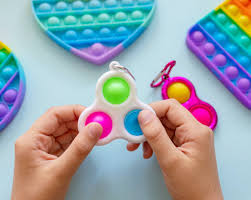This will come as a shock:
Fidget spinners and their fidgety brethren don’t work.
Actually, it’s worse than that. Research indicates that they are detrimental to learning.
In a recent study, subjects watched educational videos while either using a fidget spinner or not. Using a fidget spinner was associated with increased attentional lapses and impaired performance on a memory test covering the material from the video.
Students with a fidget spinner didn’t learn as well and were distracted while learning.
The adverse effect on learning was observed even when the sample was limited to participants who came into the study with neutral or positive views on using fidget spinners.
Even people who think fidget spinners are helping them are being hurt by them.
While the same may not be true with students with ADHD, the research on these students isn’t exactly robust and is mixed at best, with some studies indicating that students with ADHD experience even more significant adverse effects from using them.
Gosh!
Who would have thought that allowing children to play with small toys while they attempt to learn might have an adverse impact on learning?
Many teachers, I think.
Maybe even most teachers.
This one for sure.
Thankfully, the fidget spinner fad seems to be fading. I banned their use in my classroom a long time ago, but it hasn’t been an issue in recent years. I see them infrequently, and when I do, they are put into lockers and backpacks with few protestations.
Perhaps this isn’t the case in all places, but hopefully so, since the damn things seemed to harm student learning and annoyed the hell out of most teachers.


